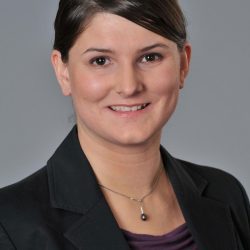Inga Winkler, Associate Professor, Central European University (Austria)
Project title: The Global Menstrual Movement & Human Rights from Below
Inga’s project seeks to explore how organizations for menstrual justice understand, conceptualize and employ human rights and how their understandings can inform and transform the global menstrual movement. Theoretically, the project is rooted in the context of scholarship that critically engages with human rights. Many grassroots movements build on a holistic understanding of human rights to advance menstrual justice. These movements are burgeoning with the Menstrual Health Hub listing more than 850 organizations across the world. Recently, menstruation is gaining increasing attention at all levels: Major magazines are covering the issue; menstrual tracking apps and entrepreneurial initiatives are proliferating; countries across the world are adopting policies on menstrual hygiene and health; global, national, and local organizations are developing menstrual health programs; and we witness the emergence of a global menstrual movement. Amidst the increasing attention to menstruation, many organizations adopt the framing of human rights. However, critical scholars have cautioned against a risk of tokenism and employing the human rights discourse in a way that inadvertently furthers stigma by associating human dignity with hygiene through an emphasis on ‘keeping clean’ and ‘managing menstruation’. While heralded as an entry point for gender justice, human rights framings risk leaving menstrual stigma and its role in perpetuating gender injustices unaddressed.
The project will use a sequential design of textual analysis of relevant documents and a qualitative survey followed by in-depth interviews with relevant stakeholders on their motivations and understandings of human rights. Inga’s language skills are limited to English, German, French, and Spanish, so Inga will draw on current and former graduate students from a range of countries with language skills in Hindi, Nepali, Portuguese, and potentially other languages as research assistants to carry out the survey in multiple languages. This framing analysis will be informed by human rights standards and principles to identify gaps and shortcomings, the use and misuse of human rights, and opportunities and strengths of ongoing efforts in the field.
At a practical level, the project is embedded in Inga’s ongoing partnership with many movement leaders in the global menstrual movement. Most immediately it is linked to Inga’s ongoing work with the Foundation for a Just Society (FJS). FJS is interested in strengthening the menstrual movement and linking it with broader feminist and gender justice movements. Together, they are facilitating a series of convenings and events to gather a broad range of perspectives to reflect upon, critique, and expand the strategic approach of the menstrual movement. The objective is to generate momentum among a broad range of academics, activists, and artists who are interested in both deepening and expanding existing work on menstrual justice.
The results of the research project will feed back into the movements through further convenings and events. They will allow for compiling lessons learnt and creating synergies as a way to strengthen the global movement for menstrual justice, thus contributing to capacity building and mutual learning.
In addition, FJS also intends to host a global conference for the menstrual movement that will provide an opportunity for movement building, exchanges and more in-depth mutual learning. FJS is hesitant to set a concrete date (potentially early 2023) due to public health restrictions. Even as restrictions are lifted in Europe and the United States, global travel continues to be impacted, and the idea of the conference is to provide for a truly global space.
The objective of the project is to examine the potential of human rights from below to influence the menstrual movement and align it with gender justice. This is not just an academic objective, but one that can contribute to shaping the menstrual movement, its demands and strategies.
